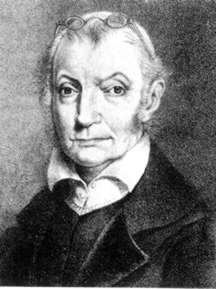1805 Burr Not Guilty of Treason

Burr
After Burr's disgrace, he became involved in a scheme to cede western lands to Great Britain. Word of Burr's western activities reached President Jefferson, and he ordered treason charges be brought against Burr. Chief Justice Marshall, who also served as a circuit judge (something Supreme Court justices did for the first 100 year of the Republic's existence), became the presiding judge in the treason trial. Marshall, from the beginning of the trial, made it clear that treason could only be what Article III, Section 3 of the Constitution stated: Treason against the United States shall consist only in levying war against them, or in adhering to their economies, giving them aid and comfort. No person shall be convicted of treason unless on the testimony of two witnesses to the same overt act, or on confession in open court." In the course of the proceedings, the lawyers for Burr requested papers in the hands of President Jefferson. Marshall demanded that they be turned over, stating that, unless they endangered national security, they must be turned over. Burr was acquitted of the charges of treason.
After Aaron Burr, the Vice President of the United States, killed Alexander Hamilton in a duel, he was indicted for murder and found guilty by a coroner's jury. This incident was a culmination of long-standing personal and political animosity, reflective of the intense factionalism of the era. Burr then escaped to Philadelphia, where he entered into negotiations with the British to separate the Louisiana Territory from the United States, driven by his ambitions which many contemporaries viewed as verging on megalomania. Involving General Wilkinson, the commander of the American military, Burr traveled west to garner support for his plan.
As word of Burr's activities slowly spread eastward, President Thomas Jefferson, once an ally, initially appeared unconcerned, reflecting the complex political relationships of the time. However, as the news of Burr’s actions became widespread, Jefferson, facing a political and legal dilemma, ordered the arrest of Burr and all others involved.
Jefferson insisted on prosecuting Burr for treason, leading to a trial presided over by Justice Marshall. The trial became one of the first major tests of the U.S. legal system and the interpretation of the Constitution's Treason Clause. Marshall initially dismissed the treason charge but retained the misdemeanor charge, reflecting the complex legal challenges of the case. The prosecution persisted with the treason charge, leading to a five-month trial, during which Burr's supporters accompanied him daily to the courthouse. The defense argued that, under U.S. law, treason required two actual witnesses, an argument Marshall agreed with, effectively demolishing the high treason case against Burr. Burr was also acquitted of misdemeanor treason.
The government persisted, indicting Burr for attempting to organize an army against Spain, but Burr fled before he could be tried again, living in Europe for many years before returning to the United States towards the end of his life.
Burr's trial and subsequent events were emblematic of the political climate of early American democracy, highlighting the tensions between ambition, legal definitions, and political maneuvering. His story remains a cautionary tale in American politics, illustrating the complexities and challenges faced by the young nation’s leaders and legal system.
 >
>